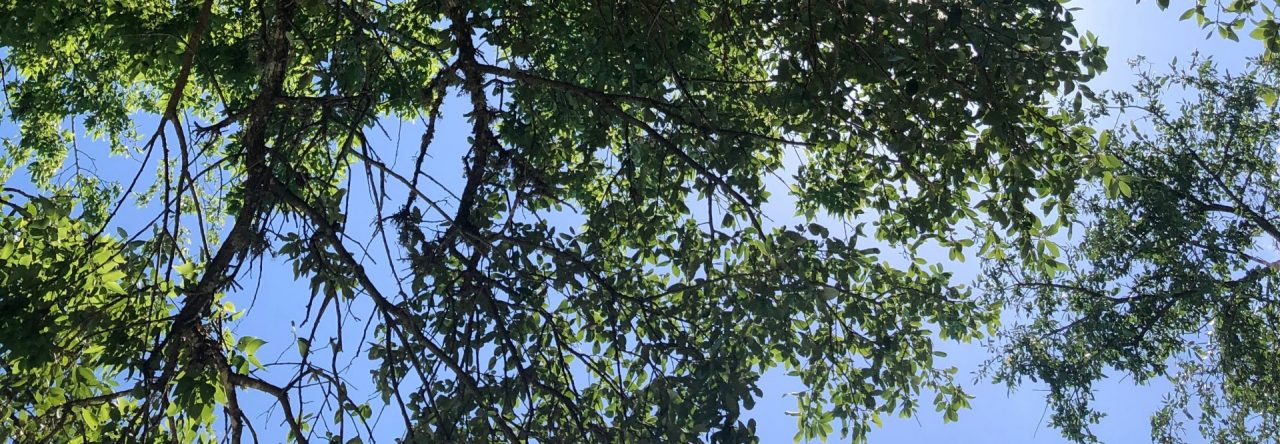Hi blog. It’s been a little while.
I wasn’t planning on taking a break, and I also wasn’t planning on having such an eventful summer. Two summer classes kept me busier than I thought I’d be, and I took my first solo trip to visit my brother in North Carolina. Traveling alone taught me that I’m capable of more than I believe, and through my physical anthropology course, I learned more about being human. Weeks later, when my uncle and grandfather passed away, I learned a lot about grief, too.
I learned that grief can be sneaky. It can show up in unexpected ways like stress, poor sleep, and sharp, short tempers. I learned that grief reveals as much about death as it does about life, and that in many ways, grief is like plunging the heart in frigid water. Once the initial, blinding shock wears off, the fierce cold intensifies each and every breath, reminding the body it is acutely alive.
In the midst of my grief, I started a new semester of school. With a heart stuffed with sorrow, hope, and longing, I stepped foot on a college campus for the first time in 2 years. Feeling more like a kindergartener than a junior in college, I navigated quaint classrooms and picked seats in rooms full of socially-distanced students. The ordinary had never felt so peculiar. In the excitement of a new school year and the heaviness of my grief, I had never felt so sad yet so hopeful at the same time.
Going back to school has been a fresh new beginning for me. I entered a new school with a new major and a body with a new baseline and limitations. Walking around campus with a backpack full of beta-blockers, I felt nothing like the freshman I was in 2018. Strolling underneath the verdant trees on campus, I’d almost forgotten how traumatic my prior college experience was. Almost.
Last Friday, as I made my way out of class, another student stopped me in the stairwell.
“Do you watch Grey’s Anatomy?” she asked, catching me by surprise.
It took me a moment to register that she was talking to me, and another moment to realize the weight her question held.
In an instant, I was transported to my freshman dorm room where I was limp in my bed, watching Grey’s Anatomy on repeat. Exhausted from the ER visits and doctor’s appointments I’d wedged into my full schedule, I used the television series as an escape, as solace. Grey’s Anatomy eased my initiation into the medical world, and some part of me cherished watching the fake doctors fight hard for their patients. In my fear and overwhelm as mysterious symptoms took hold, I couldn’t help but hope some doctor would do the same for me.
“I used to, yeah,” I managed.
“You look a lot like Jo. You know, the one who was Alex’s girlfriend.”
Under my mask, my face flushed and I smiled.
“I take that as such a complement, because she’s so pretty!” I said.
We pushed through the heavy doors, ripping our face masks off as we plunged into sunshine. The humid air felt tangible as she asked me where I was from.
“You’re from overseas, right?”
“I’m not but my parents are, actually.”
Too stunned to do anything else, I smiled. In some way, it was like she already knew me. Like we were already friends.
We chatted for another minute before parting ways. I walked away, feeling a little dumbfounded by our conversation.
While her questions were fairly typical, and her comment a mere passing thought, what she said felt profound to me. It was a complete, full circle moment.
Immersed in my Fresh New Beginning, I naively thought my past couldn’t catch up to me. I thought what had happened in Nashville would forever stay in Nashville, and that as I healed, the hard memories would rest somewhere far behind me.
But as I drove home that day, I realized that even though the past is the past, we carry every moment of our lives with us, into the next. The part of me that was sprawled out on my dorm room bed, glued to episodes of Grey’s Anatomy and gaining awareness that an illness was beginning to wreck my life, walks with me on UT’s campus. She looks up at the same beauty in the sturdy trees overhead. She feels the same shimmering sunlight glittering upon her face.
That girl’s comment felt like a reminder to take note of where I am, how far I’ve come, and how much of my life has changed. Her words were like confirmation that I’m in the right place upon the right path and no fatal mistakes have been made. In her encounter, I found permission, encouragement, and guidance to keep going, to keep moving forward, to have faith in what comes next.
Sometimes I wish POTS had never happened to me. Sometimes I wish my life had never been interrupted by the pain, the loss, and all the grief it’s brought me. Without POTS, my life would certainly be easier, and if I could wake up tomorrow cured, I would in a heartbeat. But I also know that without this deep well of pain, my joy would be much more shallow. I wouldn’t know how lucky it is to stand in the shower because I wouldn’t know how much it hurts to have the ability taken away. I wouldn’t live my days with as much intention as I do, because I wouldn’t value my energy as a currency that’s finite.
In the words of Nora McInerny, “We don’t ‘move on’ from grief. We move forward with it.” And each day, as I load my backpack with books and salty snacks, I make some space for that exhausted, fearful freshman. She deserves this new beginning just as much as I do.









